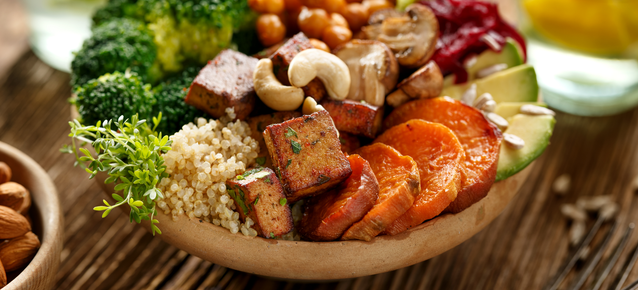Our men – what would we do without them? Fathers, brothers, husbands, boyfriends, sons, friends – they all hold important places in our hearts and our lives.
But too many of them are overweight, tired, stressed, and just not getting the best out of life.
Men and doctors
Men have been avoiding doctors since the dawn of modern medicine: too often, they'll wait until they’re in real pain before seeking help. To a large extent, this reflects cultural attitudes of ‘big boys don’t cry’. A recent study shows that in Australia, 61% don't go for regular checkups.
A yearly or even 6-monthly GP check should become an established habit from childhood onwards. Parents need to teach their young sons that asking for help is okay, and fathers should model good health habits for their sons.
By adulthood, men should be used to discussing their general wellbeing with their doctor, getting their weight, waistline and blood pressure checked, and having tests for things like cholesterol and blood sugar. This can help prevent serious ‘lifestyle’ conditions such as heart disease and type 2 diabetes.
How to support him
If your son or partner doesn’t go to the GP at least 1-2 times per year, try to make him aware of the importance of this, and help him to find a doctor he respects and feels comfortable with. Keep health in regular conversation, make it an easy topic to talk about, and when needed, don’t shy away from asking the hard questions. If you don’t, who will?
Men and their lifespan
Men’s life expectancy has always been lower than women’s, but they're slowly catching up. Men now live until 80 on average, and women 84. But living longer is only worthwhile if you maintain your energy, mobility and mental sharpness along the way.
How to support him
Try making small, gradual diet and lifestyle changes together, and speak to a dietitian and exercise physiologist for more support. Try our free Ask a Dietitian service.
Men and chronic disease
Men have a higher risk of chronic disease, including heart disease and diabetes, caused mainly by lifestyle factors such as poor diet. These diseases often present no early warning signs, but they are the leading cause of illness and death in Australia.
How to support him
Throw out the chips and soft drink at home - if he can’t see them, he’s less likely to want them! Bring in a variety of fruit and veggies instead - sadly, only 1.7% of males between 19-50 years are eating enough vegetables.
Men and protein
You can get too much of a good thing, and protein is one of these. The amino acids from proteins are great for repairing body cells and muscles, but large amounts can be harmful.
How to support him
Keep protein on his plate, but make sure it’s portioned and lean. Try other nutritious proteins such as legumes (lentils, chickpeas, red kidney beans, and black beans), tofu, tempeh, nuts and seeds. Choose protein foods over powders.
Men and alcohol
The beer belly is no laughing matter. Not only can alcohol increase his risk of cancer, it also increases his risk of obesity, heart disease, and diabetes.
How to support him
If he chooses to drink alcohol, encourage him to have no more than 2 standard drinks on any day, and aim for more alcohol-free nights each week.
Men and exercise
While weight training is great for building muscle tone and strength and increasing bone mass, cardiovascular exercise is important too. Cardio helps keep a healthy weight, encourages good blood flow, helps reduce stress, and cuts the risk of chronic disease.
How to support him
Get him to go for a daily walk before or after dinner, or in the early mornings. Go cycling on the weekends, play tennis or a team sport, and aim to use more public transport.
Men and relaxation
Men are far from immune to stress, anxiety and mental illness, and are more likely to try to ‘tough it out’ than women are.
How to support him
Encourage him to spend some quality ‘time out’ in nature with you, family and friends, or reading and other relaxing pastimes.
Let’s celebrate them
So here’s to the men who mean so much to us. Here’s to living full and vibrant lives together. Here’s to men’s health!
Men's health menu plan
Try our 7 day Men's health menu plan. Make them yourself, encourage him to make them, or make them together!
Each day of the plan includes nutritious plant proteins with at least 5 servings of vegetables and legumes/beans and at least 2 servings of fruit. The plan is best served with 8 glasses of water each day, limited alcohol and daily exercise.


